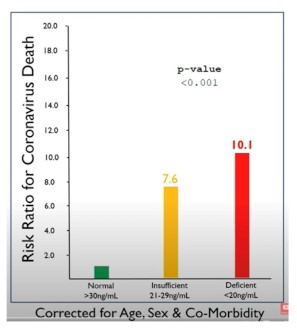Next time a virus breaks out, rather than relying on wearing a rag over your face to “protect” you, or experimental toxic chemicals called “vaccinations” even though they failed to actually immunise those who took it, use your common sense and support your immune system and you will, like I did with Covid, brush it off pretty quickly. There are countless ways to do this. Vitamin C, Zinc and Vitamin D (which virtually everyone living in the UK should take anywayfor general health, most of the year) are amongst the most obvious examples for mitigating viral illness. Personally, I really like Antioxidant Supreme as a general lifestyle product for immunity and viral protection, as well as protecting against free radical damage / anti-aging as a long term product to take for optimal health all the time.
Olive Leaf Extract – A Wonderful Anti-Viral / Anti Bacterial / Anti-Fungal and Immune Booster
Herbs such as Olive Leaf Extract are less well known but I I have been taking 2 capsules a day for a couple of years now. Why am I taking it?
The following extract comes from the highly recommended book “Olive Leaf Extract….Potent Antibacterial, Antiviral, Antifungal Agent” by Jack Richardson. ISBN 1 86512 095 5.
The following is a summarised list of this potent botanical’s apparent health benefits:
- Effective inhibition and prevention of infection by wide range of pathological microbes, including viruses, bacteria, retroviruses, fungi, parasites, yeasts, and moulds.
- The enhancement of elasticity of arteries, which improves blood flow, reduces high blood pressure, and prevents the progression of other forms of heart disease.
- The relief of inflammation related to arthritis, especially rheumatoid arthritis.
- Improvement in symptoms of chronic fatigue syndrome and related disorders.
- Ability to fight free radical production.
- Prevention and treatment of many types of viral infections, including the herpes viruses, most influenza and common cold viruses, Epstein-Barr viruses, the HIV virus, the cytomegalovirus, and others.
- Eradication of candidiasis and associated yeast syndromes.
- Effective eradication of a variety of parasites, from microscopic protozoa to intestinal worms.
- Enhancement of energy production in the body.
- Relief from toothaches, painful haemorrhoids, athlete’s foot, mycotic nails, and various other annoying conditions.
There is a lot more to learn in the book about the various problems it is said to help (such as chronic fatigue), but amongst other things, it states that olive leaf extract “has been shown to be effective against candida albicans, candida krusei, oral candidiasis, vaginitis (thush) yeast syndrome,giardia, pinwroms, tapeworms, ringworm, protozoa and many others. Besides the clinical research that demonstrates that olive leaf extract is effective against fungal and yeast infections, there is a wealth of data from personal case histories of individuals using it for similar purposes”.
Suggested Usage
General Health / Long term : Take 1 capsule twice per day
Acute / Short term: Take 2 capsules twice or three times per day
Vitamin D – The Life Saving Immune Supporter – Strengthening Our Bodies Against ALL Viral Illness.
This is extracted from a newsletter written close to the beginning of the pandemic, but my view is the same now as it was then.
 Here I want to acknowledge the wonderful Vlogger Ivor Cummins and refer people to his YouTube video found here. This video discusses the study, which I am sure you won’t be seeing on BBC News showing that those who’s Vitamin D level was below 10ng/ml were 10.1 x more likely to die from the virus than those who’s blood level was about 30ng/ml. (note: ng/ml – nanograms per millimeter of blood. In the UK its measured in nmol/L instead, which can be a bit confusing as this gives a figure which at first glance looks 2.5 x higher than ng/ml).
Here I want to acknowledge the wonderful Vlogger Ivor Cummins and refer people to his YouTube video found here. This video discusses the study, which I am sure you won’t be seeing on BBC News showing that those who’s Vitamin D level was below 10ng/ml were 10.1 x more likely to die from the virus than those who’s blood level was about 30ng/ml. (note: ng/ml – nanograms per millimeter of blood. In the UK its measured in nmol/L instead, which can be a bit confusing as this gives a figure which at first glance looks 2.5 x higher than ng/ml).
What’s interesting is that even this study misses an important point. The optimal level is not 30ng/ml. Iregard that as the minimum acceptable level. The optimal level is about 60ng/ml. How do we know this? It’s pretty easy really. Basically when we manage to get as much of our bodies as possible in the sun regularly (without burning), and when the sun is at an angle of above a minimum of 30 degrees to the earth (in the UK we have this for 8 months of the year, but only for a brief period of the day during the transition months of October and March) weakest sun months of that time), and 40 degrees for dark skinned people, we get up to 60-80ng within a couple of weeks. It never goes much above or below that no matter how much time we spend in the sun. And that’s the optimal level at 50 or more rather than the barely enough level of 30. Had the study been based on the optimal amount, not the minimum amount, one can only assume it would not be a 10.1 x higher risk for death. The difference would be far more impressive! You can see the risk of death from Coronavirus in visual terms to the left (this is a screen shot from the highly recommended aforementioned YouTube video) plotting the risk of death against vitamin D status. You don’t need to be a Professor of statistics to understand it.
Regarding what I regard as the drivel around the R1 number I also highly recommend this short video found here.
1 Remember that? I had forgotten about this BS until I re-read the newsletter I extracted this from.
Vitamin D Supplements
In my opinion if you can’t get in the sun, then you should supplement with Vitamin D, every day that you don’t get in the sun for some non-burning tanning time without splashing on toxic sunscreens that block UBV. Of the different Vitamin D products we provide, my favourite one, and indeed the one I take, is this one. High strength 5000iu, not the PATHETIC dosage recommended by the mainstream, which is almost useless. Suitable for sublingual absorption or chewing. And it comes with the added advantage of containing Vitamin K2, which ideally should always be combined with Vitamin D. That’s the subject of another newsletter as the K2 has a lot of benefits of its own.
Recommended usage: One a day every day except on days when your body has had or is going to get enough sun (note this is not possible from October to February in the UK).
Another excellent high strength and popular Vitamin D product is Plant Based Vitamin D, which is the one to go for if you prefer a liquid to the sublingual tablet. For those who want a lower strength Vitamin D, we provide several others choices.
Who is at the highest risk of all for Vitamin D deficiency?
The truth is that most people have below optimal levels of vitamin D. But some people are even more likely than average to need a vitamin D supplement. The following list is not exhaustive, but covers the most common group of people who are especially likely to need a vitamin D supplement.
- Breastfed infants, because human milk is a poor source of vitamin D, largely because the mothers themselves have poor vitamin D levels
- The elderly, as their skin doesn’t make vitamin D when exposed to sunlight as efficiently as young people, and their kidneys are less able to convert vitamin D to its active form. (Is this one of the reasons why the elderly are at higher risk of dying from coronavirus?)
- Dark skinned people as it takes them much longer to produce vitamin D from action of of ultraviolet light on the skin. (Is this one of the reasons why black and Asian people are at higher risk of dying from coronavirus?). In my opinion dark skinned people living in the UK should take vitamin D throughout the year, including during periods of fine sunny weather.
- People with disorders such as Crohn’s disease or celiac disease who don’t handle fat properly, because vitamin D needs fat to be absorbed.
- Obesity, because the body fat binds to some vitamin D and prevents it from getting into the blood. (Is this one of the reasons why obese people at higher risk of dying from coronavirus?)
- People who have had gastric bypass surgery
- People with osteoporosis, hyperparathyroidism (too much of a hormone that controls the body’s calcium level), sarcoidosis, tuberculosis, histoplasmosis, or other granulomatous disease (disease with granulomas, collections of cells caused by chronic inflammation),
- People with cancer
- People who take medicines that affect vitamin D metabolism.
Our full range of Vitamin D products is found here.
Obviously the above is not a comprehensive list of all products that protect us from viral infection – they are just a good start. I’ve written about many of the others in previous newsletters, and doubtless I will again on future occasions. I’d love to go into some of them, but I know that most people won’t read for long and if you’ve this far, I’m already on borrowed time.
Now A Word About Wearing Face Masks (or what when I was a kid, we called worthless rags).
“Masking was the single most common non-pharmaceutical intervention in the course of the coronavirus disease 2019 (COVID-19) pandemic. Most countries have implemented recommendations or mandates regarding the use of masks in public spaces. The aim of this short study was to analyse the correlation between mask usage against morbidity and mortality rates in the 2020-2021 winter in Europe. Data from 35 European countries on morbidity, mortality, and mask usage during a six-month period were analysed and crossed….These findings indicate that countries with high levels of mask compliance did not perform better than those with low mask usage.” – https://www.cureus.com/articles/93826-correlation-between-mask-compliance-and-covid-19-outcomes-in-europe
Just to summarise the official narrative…

I said from day one that wearing snot filled rags over our faces was a stupid idea, which would not have any effect whatsoever. If the fact that pretty much everyone got Covid in the end (myself included, which I presume means I am not a “covid deniar”, whatever that was supposed to mean, as claimed by a couple of geniuses who wrote to me) was not proof enough, then this study hopefully would be the proof. Always focus on promoting wellness, not running from illness. If you do that, your immune system willl cope, it will mature and in the greater scheme of things you will be better off.
 Best wishes from me and the rest of my team
Best wishes from me and the rest of my team
Mark G. Lester
Director and Overall Clever Cloggs
The Finchley Clinic
www.thefinchleyclinic.com
